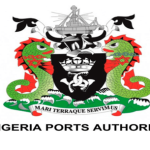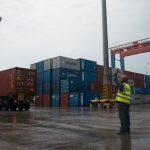Rail services were hit in large parts of the UK, including key tourist routes, as train drivers launched a new strike amid cost-of-living pressures and decades-high inflation.
Members of the Aslef union representing train drivers are taking part in a three-day rolling strike which will also affect express services to London’s Gatwick, Stansted and Heathrow airports.
Union chief Mick Whelan blamed the industrial action on the “cost of living crisis created by the economic ineptitude of the Tories (Conservatives) that have been in power for 14 years”.
Prime Minister Rishi Sunak is expected to call a general election later this year with current opinion polls putting his government on course for a drubbing at the hands of Keir Starmer’s main opposition Labour party.
Workers across the economy from doctors and nurses to lawyers, teachers and dock workers have taken strike action for pay hikes.
Five main train operating companies were due to be hit by the first day of the latest Aslef strike.
More train drivers at different companies would walk out on Saturday and again on Monday with overtime bans also being implemented.
Last November members of the RMT rail union, which represents various types of rail workers, voted in favour of a pay deal that ended more than a year of walkouts.
“Aslef is the only rail union continuing to strike, targeting passengers and preventing their own members from voting on the pay offer that remains on the table,” a Department for Transport spokesperson said.
“Having resolved disputes with all other rail unions, the Transport Secretary and rail minister have ensured that a pay offer is on the table –- taking train drivers’ average salaries from £60,000 up to £65,000 ($75,800-$82,100),” the spokesperson said.
Aslef chief Whelan, speaking in front of striking drivers at London’s Euston station, said that offer from last April would never be accepted by members, describing it as “ridiculous” and a “land grab for all the terms and conditions we have negotiated over the years”.








